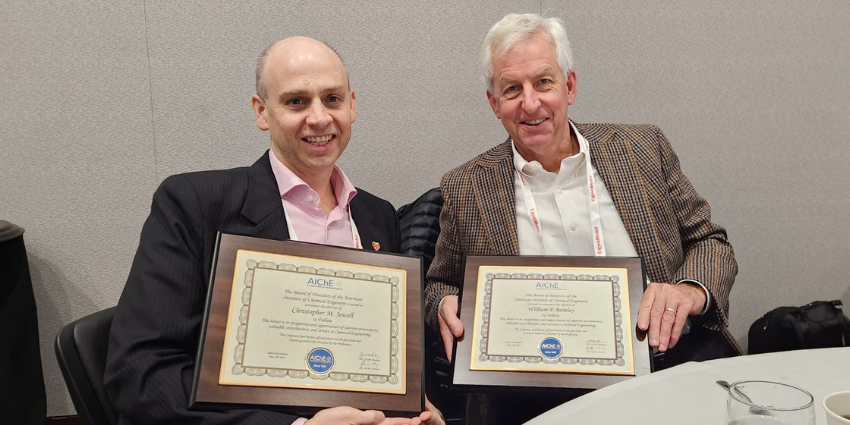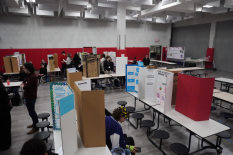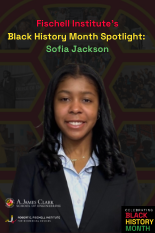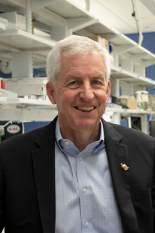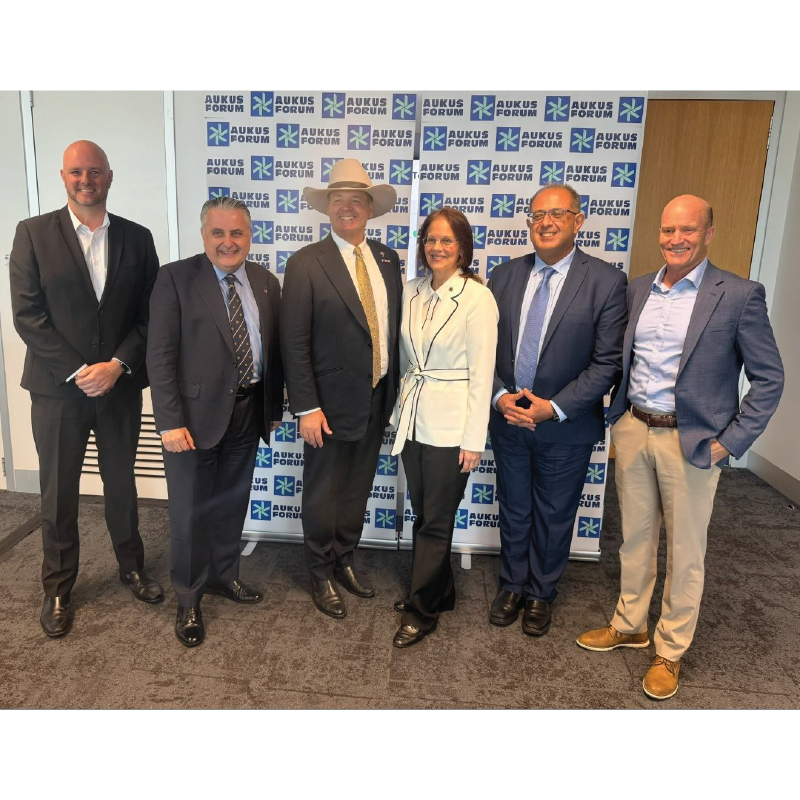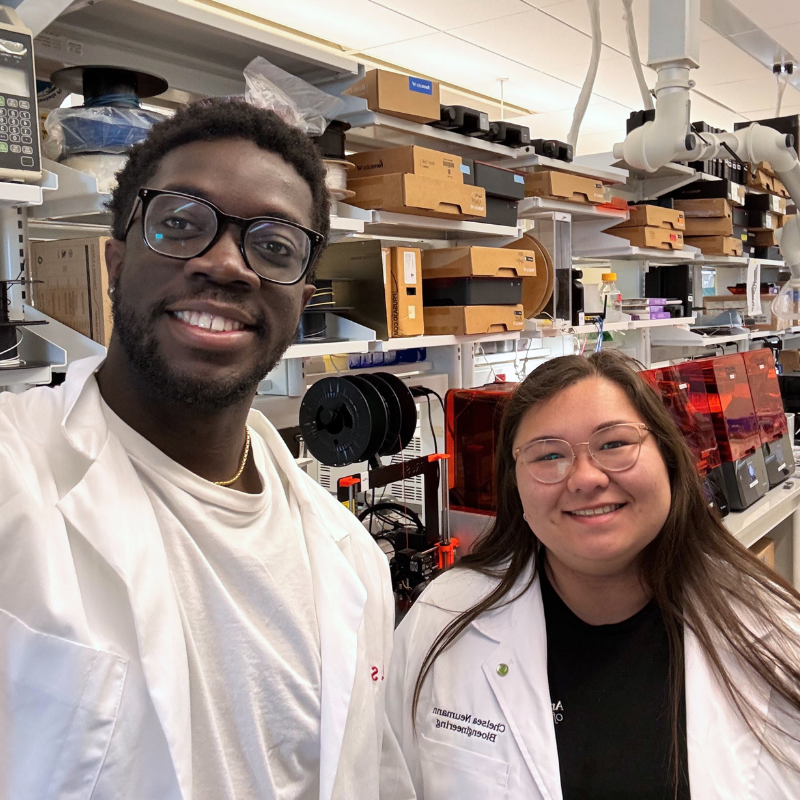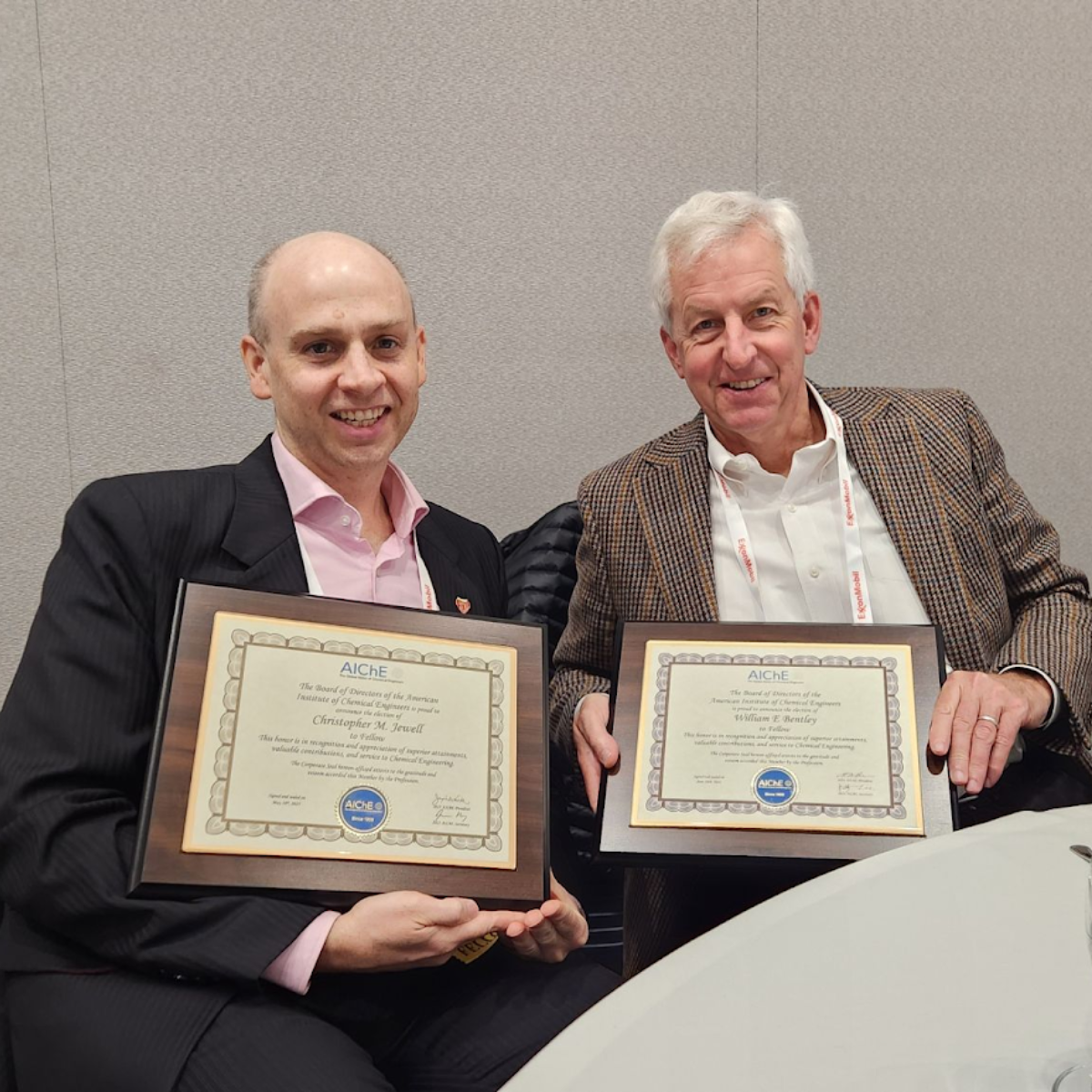News Story
Fischell Institute Students Receive Awards at ChBE Department Showcase
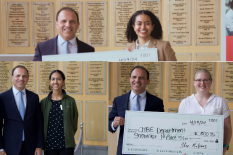
Three Fischell Institute students were recognized for their research at the Chemical and Biomolecular Engineering Department Showcase on April 19, 2024.
Futoon Aljirafi, a third-year chemical and biomolecular engineering Ph.D. student in Fischell Institute Director Bill Bentley’s Biomolecular and Metabolic Engineering lab received first place among the graduate research posters. Alyssa Petersen, a first-year chemical and biomolecular engineering Ph.D. student in Affiliate Fellow Hannah Zierden’s research lab, was awarded Best Graduate Three-Minute Talk. Yasmi Chibber, a junior chemical and biomolecular engineering student also in Zierden’s lab, received Honorable Mention for her undergraduate research poster.
At the research showcase, Aljirafi offered a deep dive into her research, which bridges the gap between biological and nonbiological things. Her poster discussed how an abiotic hydrogel that she helped develop can autonomously produce hydrogen peroxide, a signaling molecule. This molecule can be interpreted by living organisms, like E. coli, and elicit a response, which can then be used to produce other signaling molecules or create a product of interest, such as a protein.
“It feels great to be recognized for the work that I have been doing,” Aljirafi said. “Receiving this award has given me even more drive and motivation to keep developing the work and hopefully discover new and exciting things regarding cell-to-cell and cell-to-material communication.”
After graduation, Aljirafi plans to enter the pharmaceutical industry.
Petersen’s award highlighted her research on how stress affects the microbiomes of one’s body, specifically the vaginal microbiome.
During her presentation, Petersen described how people become susceptible to dysbiosis, an imbalance within the vaginal microbiome, when stressed. This imbalance causes the vaginal environment to change from a healthy microbiome state to an unhealthy one, inviting disease to take hold.
Petersen and her lab mates are investigating how the vaginal microbiome changes when people are stressed. They study how environmental changes impact the signals that bacteria send out to communicate with other parts of the body. The team’s research goal is to engineer biomimetic communications that can override the natural bacterial communications to provide protective signals in the vaginal environment and promote better health outcomes.
“I was quite surprised to have been awarded the Best Three-Minute Talk in the showcase because all of the presenters did so well,” Petersen said. “It made me feel better about my chosen research topic because it seems impactful and people care.”
After graduation, Petersen plans to return to the pharmaceutical industry.
Chibber’s research centers around the use of extracellular vesicles (EVs), biological nanoparticles that allow communication across the body, as biomarkers for disease. She is focusing on preeclampsia, a disease characterized by high blood pressure during pregnancy that can be deadly for both mothers and babies. Her poster highlighted the essential characteristics, such as the size, shape, and surface charge, of EVs found in healthy vs diseased patients.
“This award means that I can effectively communicate the results of my research to people who aren’t familiar with the topic and help people understand the importance of the results,” said Chibber. “I feel more motivated to continue this research and am excited to share my future results.”
After graduating, Chibber plans to attend graduate school and earn a master’s in chemical engineering.
The Fischell Institute celebrates its members’ accomplishments and looks forward to their continued success.
Published May 17, 2024
